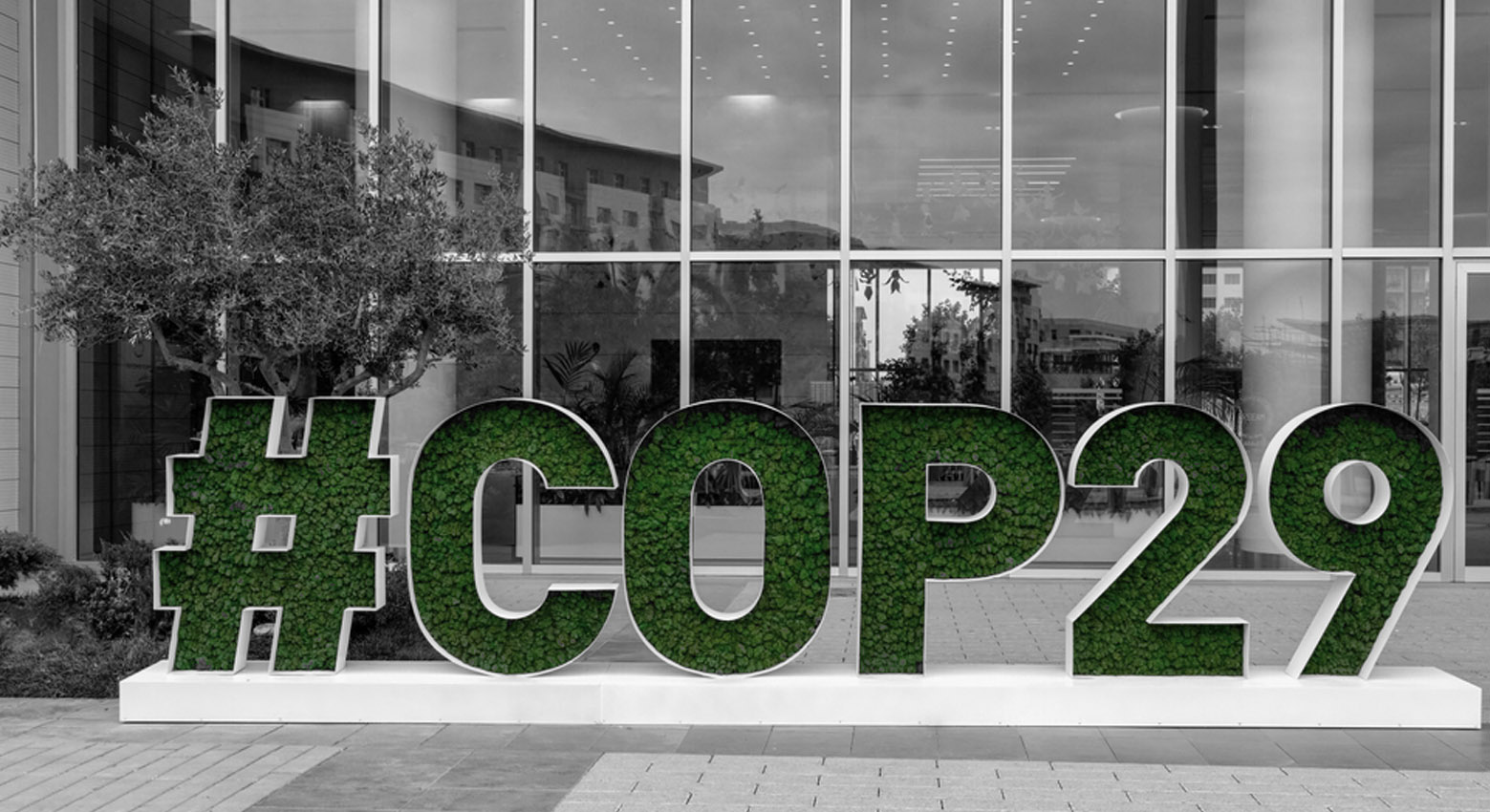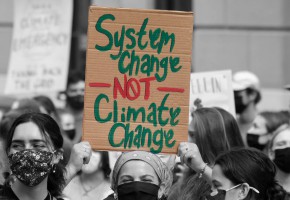

Road to COP29 - Malak Altaeb
The world confronts the impacts of climate change through diverse mechanisms and frameworks that are changing aspects around the world. While Libya remains at the intersection of elevating impacts of climate change while navigating its internal political instabilities and economic challenges and dependence on an economy rooted on revenues generated from fossil fuels. Many countries worldwide since the Paris agreement during COP21 in Paris in 2015, countries expressed their dedication to make transformative shifts to tackle climate change impacts on the national level through developing national climate action plans and developing adaptation and mitigation plans. The Paris Agreement became the first comprehensive international agreement and first legally binding international treaty on climate change.
Unfortunately, Libya continues to struggle with increasing vulnerability to extreme weather events such as droughts and floods. Despite Libya’s interest in the file following its signature to the Paris agreement in 2016 and finally ratifying it in 2021, Libya has not submitted its climate action plans or clearly outlined its adaptation and mitigation efforts to tackle the issue.
Libya is characterised by an arid and semi-arid climate due to its geographical location on the southern Mediterranean coast and over 90 percent of its land is comprised of desert environments. Climate change has exacerbated environmental challenges such as desertification, land degradation, and limited rainfall patterns which have negatively affected water and food security. In terms of flooding events, one prominent example is Storm Daniel in September 2023 and its devastating impact in northeastern Libya, specifically the city of Darna. After affecting Greece, Bulgaria and Turkey, the storm moved slowly in the eastern Mediterranean for several days before major rain belts affected northeastern Libya.
According to the World Bank, Libya’s losses due to Storm Daniel reached around 64.5 million US dollars. Thus, Libya presents a unique, yet complicated example of countries affected by long periods of conflict and socio-economic instabilities. The situation left Libya struggling to move beyond the status and addressing its multifaceted challenges. As a result, the focus has been on security and power control and very little on key issues facing its population, including climate change and environmental degradation.
The devastation in Derna, where about 25 percent of the city was destroyed by floods, was exacerbated by the collapse of the two dams, and resulted in thousands of deaths, missing, and displaced people. Climate change and disasters can be considered multipliers of already existing vulnerabilities in Libya related to poverty. Storm Daniel played a huge role in revealing Libya’s dire environmental reality and the absence of authorities’ preparedness and the lack of political will in actively tackling the impacts of climate change where it is already grappling with internal conflict and poor governance.
Floodings and intense periods of rainfall are becoming more frequent and intense. For example, floods that occurred across southern parts of Libya due to heavy rainfall, causing huge material losses and severe infrastructure damage in many cities and towns. The southern region is not accustomed to heavy rainfall due to the area’s climate and landscape. As Storm Daniel revealed, the region is not prepared for this change in climate either.
In the aftermath of Storm Daniel, international aid played an important role in the recovery efforts and helping affected communities. This can also raise questions on Libya’s situation from international aid and climate finance mechanisms related to tackling climate change, such as the establishment of the Loss and Damage fund that was finally announced during COP28 held in the United Arab Emirates (UAE).
Libya’s contribution to greenhouse gases (GHGs) emissions is low compared to the big emitters such as the USA, the Global North and China. However, it is essential to highlight that Libya’s participation in the Conference of the Parties (COP) remains extremely limited. This could reflect poor governance practices and a lack of coordinated efforts on a governmental level in seriously addressing environmental issues and climate change. Also, the country’s position during COPs remains greatly influenced by oil and gas dependency across Libya’s economic activity.Oil dependency is further reinforced by Libya’s role in European energy trade agreements, which increase the countries reliance on fossil fuels, while negotiations at COP move towards transitioning away from them.
Still, with clear evidence of devastation posed by climate change in Libya, the country is eligible for the Loss and Damage fund. However, Libya’s political situation complicates financial transactions due to sanctions and limitations imposed on Libya. Moreover, corruption in the country, amid political tensions, has become an increasingly detrimental issue, leaving local communities struggling to sustain suitable living conditions. The perceived financial and political risks make climate finance investments volatile and increase the risk that financial support wouldn’t reach those impacted by climate change. It is essential, therefore, to clearly develop a transparent mechanism that would ensure loss and damage funds reach Libya’s affected communities.
For example, there are frameworks that could be adopted where it ensures finance reaches those in most need, but it is important to ensure that it reaches them through indirect and non-governmental channels to eliminate corruption and possible misuse of the received funds. Libya, for instance, could benefit from a funding framework that focuses on transferring benefits directly to communities to respond to crises by developing an integrated beneficiaries database that would ensure that no duplicates exist or non-existent people receiving benefits. This framework could be applied only under an international entity’s surveillance and monitoring to ensure that transfers are made to the identified beneficiaries.
In spite of Libya’s climate crisis, there are still many opportunities that, if seized, could change the country’s reality and result in transformative change. Local actors from CSO’s, private sector, non-governmental organizations, and climate and human rights groups can jointly play an integral role in pushing Libya towards making positive impact in tackling the country’s environmental challenges and ensure that communities are adapting systematically to the new reality under climate change.
Malak Altaeb
Recent publications

ANND Newsletter January 2026 - From Davos to the UPR: Between Promises, and Accountability
Related publications

An Alternative progressive cycle and a revitalized multilateral system - Roberto Bissio

